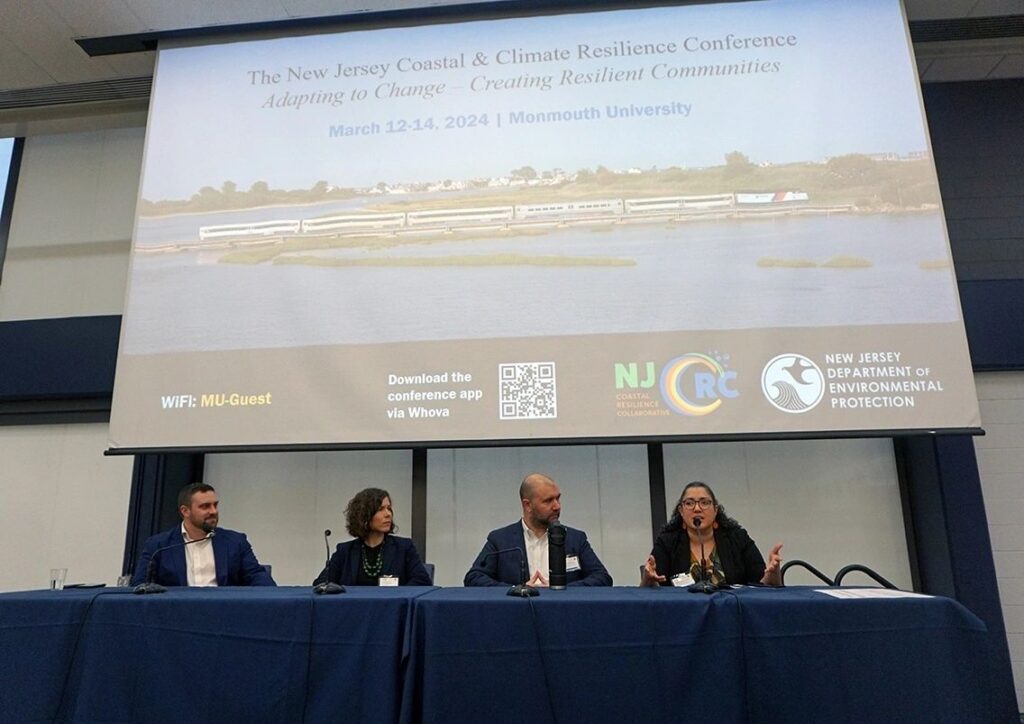The NJCRC and the New Jersey Department of Environmental Protection (NJDEP) co-hosted their first New Jersey Coastal and Climate Resilience Conference from March 12-14 at Monmouth University in West Long Branch. With a theme of “Adapting to Change – Creating Resilient Communities,” the event gathered 300 attendees and nearly 150 speakers for three days of wide-ranging discussions on the challenges facing the state’s diverse coastal environments. Slides for many of the speakers and the agenda can now be viewed on the conference web page.

Kicking off the event, NJDEP Commissioner Shawn LaTourette said the breadth of information being covered in the sessions underscored the extensive scope of solutions that will require support in order for the state to address its climate resilience needs.
“The resilience menu, as you’ll see throughout this conference, is large and we have to invest in every single course,” LaTourette said. “The answer to our sea-level rise, climate inundation and extreme heat challenges lies in improving multiple elements of coordinated governance.”
The three-day conference included expert panels on themes including municipal support for resilience planning, coastal ecosystem restoration, communicating climate change, offshore wind energy, climate-resilient transportation, beneficial reuse of dredged sediments, and nature-based shoreline stabilization. It concluded with a guided bus and walking tour of mitigation projects in Monmouth County, where local officials and practitioners shared their insights on the sites.

The NJCRC and NJDEP have begun scoping a potential second conference to be held in 2026. Reflecting on the information shared throughout the week, NJCRC Co-Chair and Monmouth University Urban Coast Institute Director Tony MacDonald asked the speakers on a closing panel to consider how New Jersey could make significant, impactful progress on the resilience front by the next event. Hoboken Chief Resilience Officer Caleb Stratton said setting big goals can be daunting, but they can be achieved if you break them down into a series of smaller steps and take them on “one bite at a time.”
“I think we should set the goal of creating the most productive oyster habitat in the world in the New York Bay, because it was once that,” Stratton said. “New York has a Billion Oyster Project; New Jersey doesn’t. … I want my daughters to be oyster farmers. That’s an ‘impossible’ goal, but maybe it’s not, because when you break a billion down, it becomes a thousand millions.”
Doug Parsons, host of the America Adapts climate change podcast, served as a plenary speaker and interviewed several participants at the conference. Recordings of those interviews will be available soon on the America Adapts YouTube Channel and other podcast platforms.